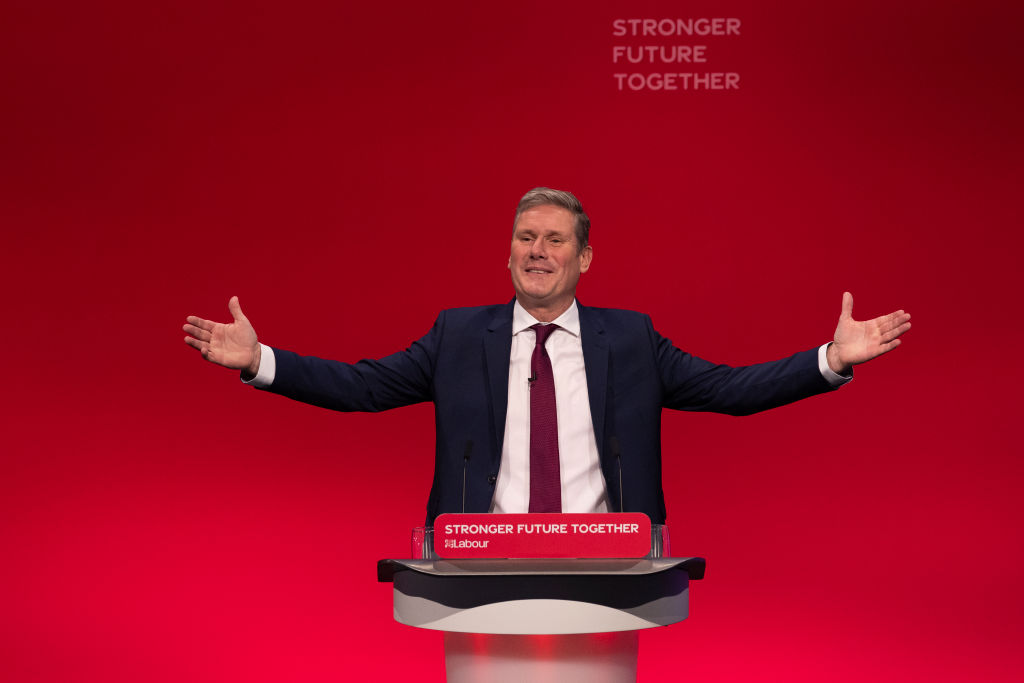
There are reasons for Labour to be cheerful.
After the Owen Paterson fiasco and the CBI speech on 22 November, the Prime Minister is clearly having a bad time of it. His popularity with Tory activists has plummeted as the wider Conservative movement has belatedly realised that he is not delivering the Thatcherite revolution they expected. With 2022 likely to be a year in which taxes rise and living standards fall, the government is confronting further challenges.
This has given Keir Starmer the space to deliver a reshuffle that has been rightly well received. It may come as a relief to the Prime Minister that he will no longer have to face Yvette Cooper when he next appears in front of the Liaison Committee. But for Starmer, it was a waste of one of Labour’s most formidable politicians not to have her holding a senior shadow cabinet position.
The promotion of Bridget Phillipson, Jonathan Reynolds, Wes Streeting, Pat McFadden and Peter Kyle should all cause the Conservatives some concern. Kyle, in particular, has an ability to appeal to wavering Conservatives that makes him one to watch.
Ideologically, the reshuffle moves the front bench away from the left and towards the centre-ground. There are no Corbynistas left in the shadow cabinet, and even Ed Miliband’s role has been diminished. It is unfortunate for Starmer that he is still lumbered with Angela Rayner, but it looks likely that Labour’s offer at the next general election will be the most centrist since 2010.
Of course, Labour still lost in 2010, and the likely result of the next election remains another Conservatives majority. It might be a smaller majority, but a fifth consecutive election defeat for Labour would be unprecedented in modern times.
Labour has a mountain to climb. To form a majority, the party needs a swing of 10 to 12 per cent, which is greater than that achieved in 1997. If Labour was on track to achieve that, it would not be polling more or less level with the Conservatives. Even oppositions with commanding leads at this point in a parliament can go on to lose, as the results in the 1987, 1992 and 2015 general elections show. An opposition not having a commanding lead is a very strong indicator that the government of the day is heading for re-election.
Labour faces fundamental challenges. As Peter Kellner has shown in his recent report for the Tony Blair Institute, the size of Labour’s traditional working-class support has reduced, the public views the Labour Party as incompetent, and voters who deserted Labour for the Conservatives in 2019 think that Labour does not care about ordinary working people and pensioners. As Tony Blair put it in his foreword to the report: “Labour has a cultural problem with many working-class voters, a credibility problem with the middle ground, and is seen as being for everyone other than the hard-working families who feel their taxes aren’t spent on their priorities.”
Come the next general election, there are six obvious attacks from the Conservatives that Labour will have to repel if it wants to win.
The first is Labour will put up taxes. One might think that the Conservatives will be in no position to throw stones, but just because they themselves increased taxes does not mean that they won’t accuse Labour of wanting to increase taxes even more.
The second charge also relates to the public finances: Labour will take risks in borrowing more. Both these accusations come down to the perception that Labour spends too much and spends it badly. The task of shadow chancellor Rachel Reeves and shadow chief secretary to the Treasury Pat McFadden will be to neutralise these attacks. The government’s own record of wasteful expenditure means that this is not an impossible task.
Third, the Tories will win any culture war, which means they will want one. Blair is right that Labour should “openly embrace liberal, tolerant but common-sense positions on the ‘culture’ issues, and emphatically reject the ‘wokeism’ of a small though vocal minority”.
[see also: Tony Blair: Without total change Labour will die]
Fourth, Boris Johnson will accuse Labour of wanting to reverse Brexit, almost regardless of Labour’s actual position on the subject. Avoiding the debate will be impossible. It will be obvious that the vote to leave the EU was deeply damaging for living standards and silence would leave a vacuum that others will fill. Labour should lean into this debate but must frame it as an economic issue not a cultural one.
Fifth is Scotland. Expect to see posters with Starmer in Nicola Sturgeon’s pocket. A Labour majority is realistically out of reach but a non-Conservative majority is not. Will this result in a “coalition of chaos”? Labour needs a plan that can reassure voters that it can avoid chaos without selling out the Union. It should explain this plan sooner rather than later.
The sixth and final charge is that the left remains waiting to pounce. Justin Webb’s question to Starmer on Radio 4 about whether he thinks Jeremy Corbyn would have made a better prime minister than Boris Johnson is one that will need a convincing answer. Starmer will also need evidence that he has properly defeated the hard left.
Labour needs to work tirelessly and take some risks to eliminate these negatives, not to mention the task of setting out a compelling and positive case as to what it would do in office. Unless it succeeds in this, Labour’s progress of the last few weeks will count for little.






